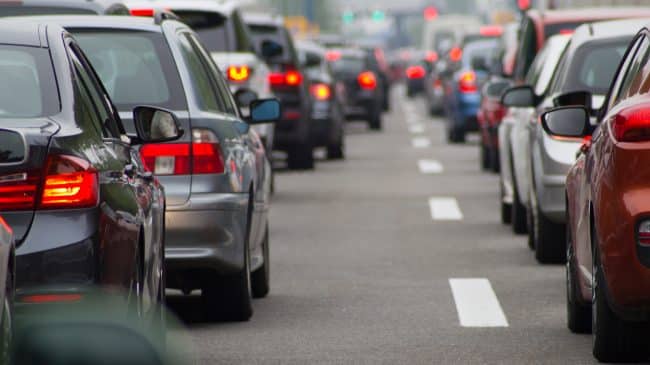Rebuilding America’s interstate highway system would cost $57 billion a year over two decades, according to an expert committee appointed by the Transportation Research Board. It gets worse. By the panel’s own estimates, all that rebuilding would leave the highways in considerably worse shape in 2040 than they are today. And this would require raising federal fuel taxes by 360 percent, a figure the committee left out of the report.
The committee gave ample proof that the interstates are crumbling and in some areas of the country need to be fully rebuilt. But the committee’s pay-as-you-go proposal is both too gradual and fiscally irresponsible. It would replace bridges at about the same rate they become deficient, so that some would always be dangerously dilapidated. Road repair would take so long that the number of miles of interstate in poor condition would double over two decades.
It would be better to issue bonds backed by revenue from an all-electronic, market-priced tolling system that charges drivers by the mile traveled to finance reconstruction. This would provide the up-front cash needed to rebuild and modernize the system now. Private investors are eager to invest in interstate reconstruction, as evidenced by successful public-private toll-road partnerships in Colorado, Florida, Texas and Virginia.
Lawmakers will debate the next federal highway bill in 2020. To reverse the highways’ decline, Congress could offer interested states an exemption from the 1956 ban on interstate-highway tolls. The exemption should be conditioned on a commitment to customer-friendly provisions to stop states from treating trucks and out-of-state motorists as cash cows. Many politicians talk about installing tolls that charge only trucks, or making out-of-state cars and trucks pay twice as much as in-state users.
The federal government should mandate that tolls apply to cars as well as trucks and that the rates are the same regardless of a vehicle’s origin. And drivers need to see what their money funds. Motorists shouldn’t start paying tolls on a corridor or bridge until it has been rebuilt. Likewise, states should be barred from using toll revenue for anything other than interstate repair and operation or else they might raid the new stash to prop up their budgets.
All-electronic systems like E-ZPass dramatically reduce the costs of toll collecting, which in the past devoured as much as 30 percent of the money generated by tolls. Such systems also make it easy to calculate the fuel used per tolled-miles driven and provide a monthly fuel-tax rebate to motorists. No one should be double taxed by tolls and fuel taxes.
Congress is unlikely to take the TRB’s advice and raise federal fuel taxes by 360 percent to rebuild the interstates. But it would cost the feds nothing to give the states that are interested in customer-friendly tolling the option to try it. The time has come for America to invest in a 21st-century interstate highway system.
A version of this article first appeared in The Wall Street Journal.

